By Rick VanSickle
Sitting on the pool deck on a hot, sunny day at The Farm, the wines start arriving one by one and I am struck by two things: first, the sheer beauty of where I am, and second, where did all these wines come from?
The beautiful part of is easy (if not distracting). The Farm is a magical place with the stately family farmhouse providing a dramatic backdrop for the north and south sloping vineyard and poolhouse below the home, the scene of many annual wine release parties that have become legendary in Niagara.

But all these wines? The Farm, owned by the Neudorf family (Jeff Neudorf is president of Ferguson-Neudorf Glass), began life as a four-bottle collection of two-single vineyard Pinot Noirs along with a Niagara Chardonnay and a Niagara Pinot Noir, the latter wine designed mainly for restaurant lists.
The core four wines — The Neudorf Vineyard Pinot Noir, Mason Vineyard Pinot Noir and the black label Chardonnay and Pinot Noir — are back, along with a rosé, introduced last vintage. And get this — six new wines are also being released under a separate label called RR81 that I bet very few people even know about. The RR81 wines began as a tiny allotment of Syrah, Cabernet Franc and Zweigelt from the 2020 vintage. These were cultish wines that mostly friends and family drank, and now the brand has gone mainstream, expanding to Riesling, Gewurztraminer and Gamay Noir, all made with zero additives of any kind. For the first time are being offered as a six pack. If you want these wines (which we review below) watch the RR81 Instagram feed for an announcement coming up early this summer here.
Now, a few in-the-know bottle shops locally and in Toronto have been quietly selling these wines, along with restaurants, but the wines haven’t been widely accessible to the public before now. The six single-variety wines are constantly changing, but the flagship wine, and one constant in all three vintages made, has been the Zweigelt, an upcoming wine that has found success recently with the more adventurist wine drinking crowd and more forward-thinking restaurants in Toronto. Here’s where it gets weird.
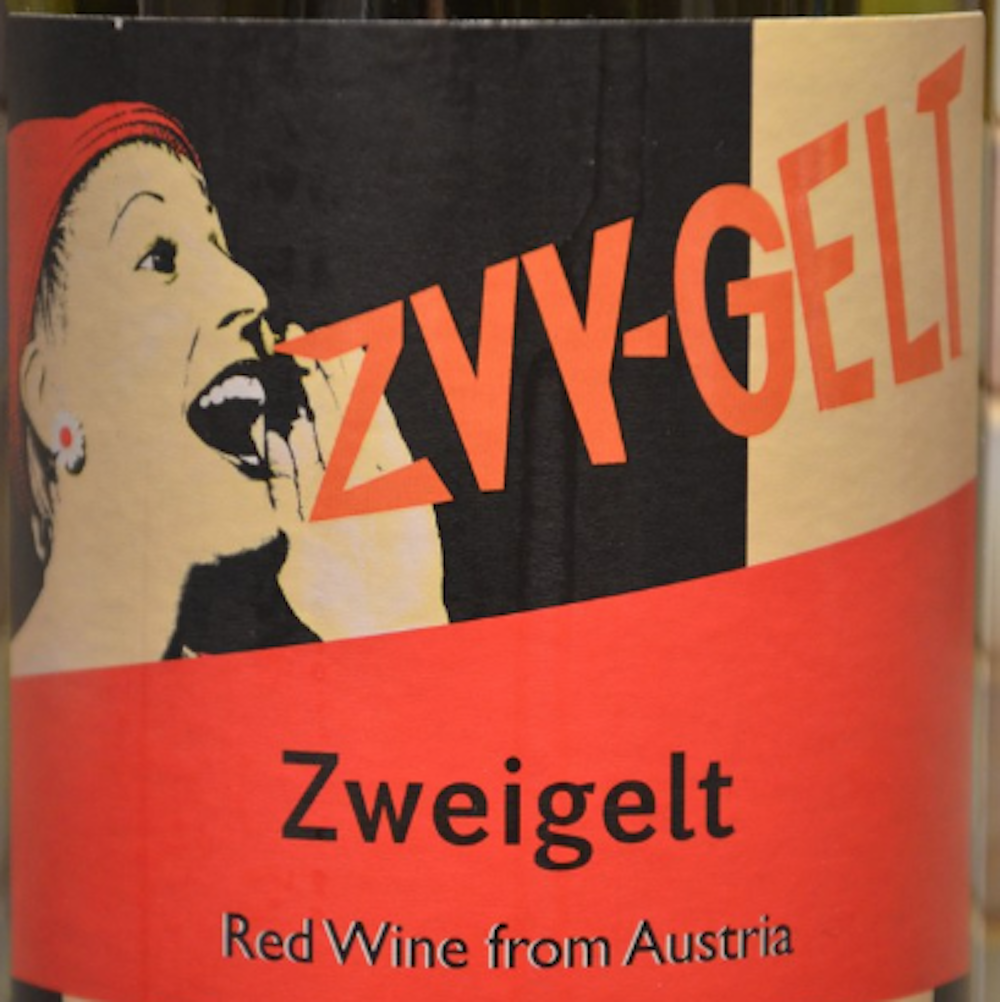
Zweigelt is dead. You heard me correctly. The name is dead, or at the very least, dying a slow death as the story of how the name Zweigelt ever adorned a bottle of wine in the first place. “It’s quite a shocking story,” Erika Neudorf, daughter of Jeff Neudorf and one of the many Neudorfs involved in the family wine project.
A story, and not even a new story, has been making the rounds after it was published by the Grape Collective. In that story an Austrian grape breeder named Dr. Friedrich Zweigelt is said to have succeeded “beyond his most vaunting ambitions, creating a variety that goes on to become the most planted red wine grape in his country (Austria). Eleven years after his death, the grape is given his name: Zweigelt, for Dr. Friedrich Zweigelt, a crucial contributor to Austrian viticulture — and, recent scholarship has verified, an early, active, and enthusiastic Nazi.”
Yes, a Nazi. You must read this full story here to fully appreciate the research that went into these shocking findings. Needless to say, the movement to cancel out the name Zweigelt from the annals of history has hit a nerve among Austrian grape growers and winemakers, where Zweigelt is the most planted red grape in the country and has divided opinions of whether to keep the name or move on from it.
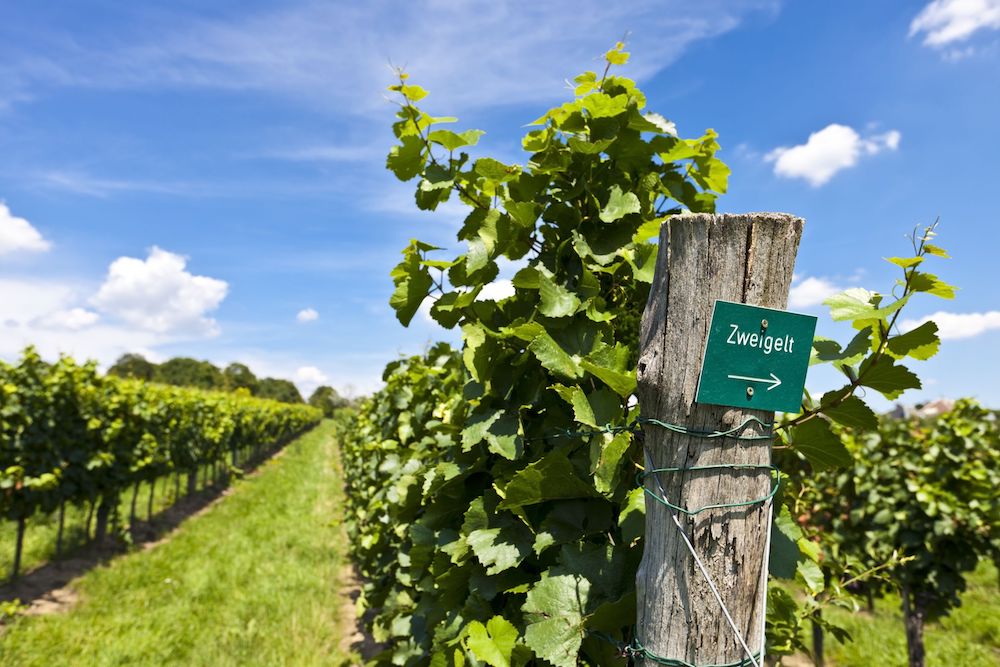
But here in Ontario, Neudorf is quickly finding out, no such allegiance exists, at least now, considering the allegations. It became abundantly apparent when some of the more informed sommeliers that carried (and loved) the RR81 Zweigelt were suddenly not replenishing their supply. When Neudorf discovered why (the Grape Collective story was news to her, but she researched it) she quickly asked VQA if the name could be changed to the Zweigelt synonym of Rotburger (pronounced WROTE-burger) it was quickly approved. Sort of a no brainer, right?
Neudorf also contacted other Ontario Zweigelt producers such as Paradise Grapevine and Therianthropy to let them know they could do the same. David Everitt of Paradise Grapevine confirmed to Wines in Niagara that they will be changing to Rotburger “moving forward, and we plan on doing a bit of promotion of the situation when we release the wine later this year to highlight the change.”
David Eiberg, the winemaker at Therianthropy, said: “We began discussing this internally as soon as we heard that VQA was authorizing the Rotburger name and fully agree that the use of Zweigelt should be eliminated ASAP. We have since moved to have our 2022 label of wine containing this grape changed to Rotburger and will be using it going forward.” (Update: Eiberg reached out to Wines in Niagara, that the label change didn’t take place for the 2022 vintage because they couldn’t change them in time. There is Zweigelt for 2023, to the name change will be seen for the 2024 vintage.)
Another winery that bottles a Zweigelt is the Lailey winery in Niagara. Ann Sperling, consulting viticulturist and winemaker for Lailey, told Wines in Niagara: “I think it’s fair to say that in the spirit of rebuilding what the Laileys started, we named the wine as it originally had been called. With the new synonym option, we’ll be reviewing that decision.”

The Farm is very much a family affair. On this day, I tasted with Erika Neudorf (pictured above right with Morgan Juniper), Michelle Zubrinich, Jeff Neudorf (father to Erika) as well as the Farm’s winemaker, Morgan Juniper (also the winemaker at neighbouring 16-Mile Cellars), who might as well be a part of the family. It’s a tightknit famjam (and special friends) with deep bonds and help far beyond the ones mentioned here.
The family’s namesake vineyard surrounds their home and winery on the Twenty Mile Bench near Jordan. The vineyard first achieved greatness when it was called La Petite Colline of Le Clos Jordanne fame. When the Neudorf family bought the 10-acre property it was planted to hybrids from the 1960s. In 2000, the Neudorfs replaced those native grapes with Pinot Noir and Chardonnay, and it was immediately contracted to Le Clos Jordanne. At the time, the Le Clos brand was owned by Vincor, now Arterra Wines Canada, which has returned to producing the Le Clos wines. The vineyard was named La Petit Colline and provided some stunning single-vineyard wines for Le Clos.

After a decade of providing grapes for Le Clos, Constellation Brands, owner of the project at the time, decided to discontinue the brand. Next up was Thomas Bachelder, the original winemaker at Le Clos, who purchased the grapes for Domaine Queylus, where he was the founding winemaker. The Neudorf family bought back two barrels and made the first Farm wine in 2012.
Kelly Mason (head winemaker at Domaine Queylus, Honsberger and her Mason Wines brand) was hired as the founding winemaker and grapes from her own Mason Vineyard were added to the mix (but the 2020 is the last of the Mason Vineyard Pinot from The Farm).
Juniper joined The Farm after Mason in 2020 and is responsible for all the wines made in 2020 and beyond.

Because Peter and Dora Neudorf reside on the property, a tasting room is not a reality. The family worked together to determine how they could sell the wines without disrupting day to day life on the property. It was such that the annual party came to be, opening the cellar door to friends and family with the opportunity to taste new vintages, kick back, eat, laugh, swim, and dance.
That date is coming, folks. First of all, get on the mailing list here. The party is Sunday, Aug. 13. You have to join the list to receive the email on June 23 at noon to book a free tasting. Online sales open on June 24 at noon (for mailing list only).
“The cellar door is a way to share our hospitality with other people,” says Erika Neudorf. “For us the party is an extension of how The Farm enjoys a party.”
Here’s what I liked from the tasting:
The Farm Wines
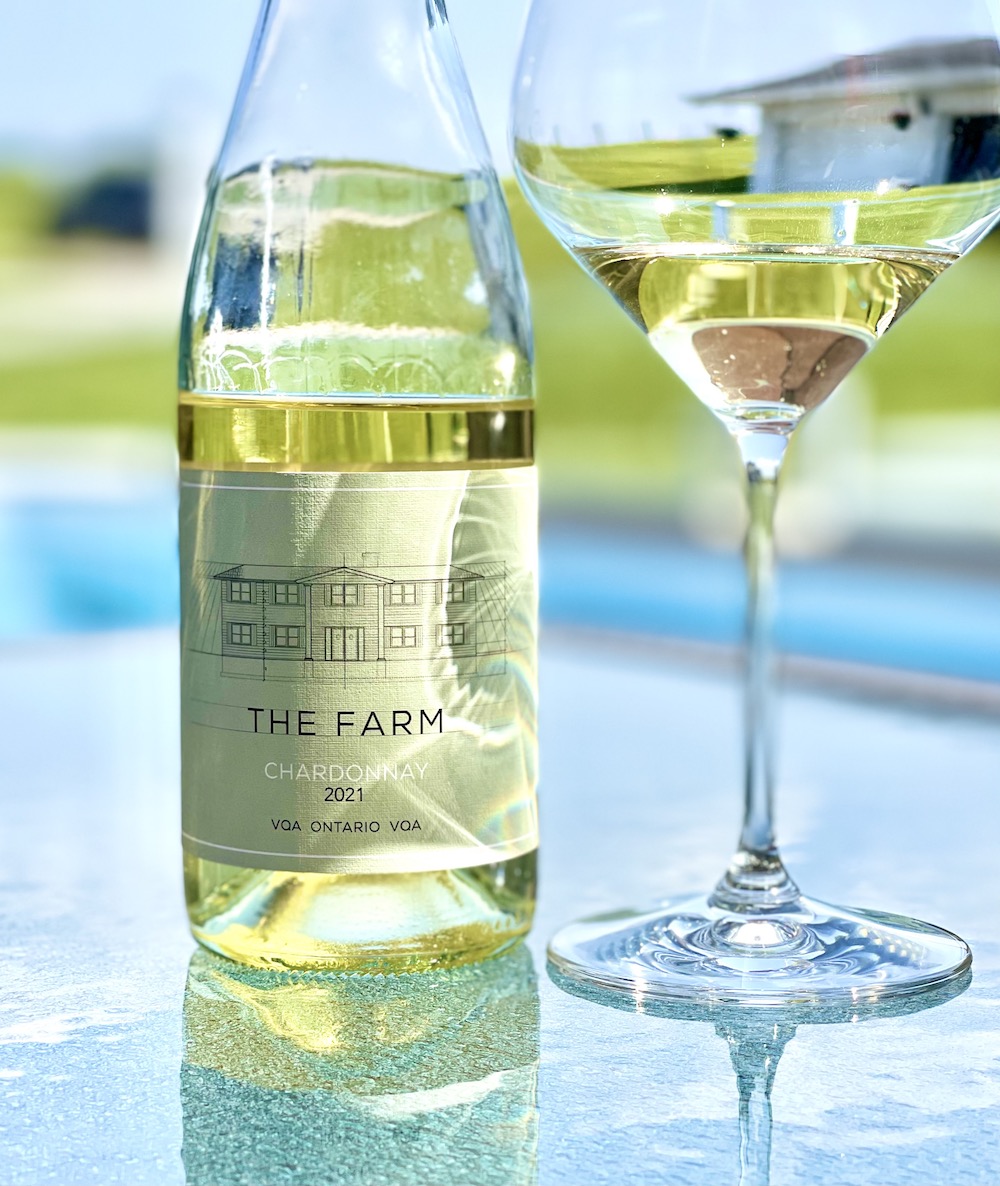
The Farm Chardonnay 2021 ($25, 92 points) — What is it about this Chardonnay that makes it as popular as it is? It sells out pretty much as soon as goes on sale. My wife Maureen raves about it, my neighbour to the left of us seems to ask me every day when he can get it after I gave him a bottle to try when they moved in last summer. This Chardonnay, a blend of grapes from the Escarpment, has hit the trifecta — price, beautiful packaging and a taste profile that strikes all the right notes. “We’re trying to make a bright, minerally driven Chardonnay,” says Juniper. “Something we want to drink without messing around.” It’s a hands-off approach to winemaking here with wild fermentation, barrel fermented and aged in a blend of stainless steel (70%) and oak puncheons (50% new) and bottled unfined and unfiltered. It has such a lovely and fresh nose of pear, lemon zest, stony/chalky/saline minerality, crisp apple and just a hint of spice. It’s so fresh and vibrant on the palate with stone fruits, citrus/bergamot, integrated spice, and stony minerality with a vibrant, lifted finish. I would suggest cellaring a couple of years, but even I can’t keep it that long. Drink it and be happy!
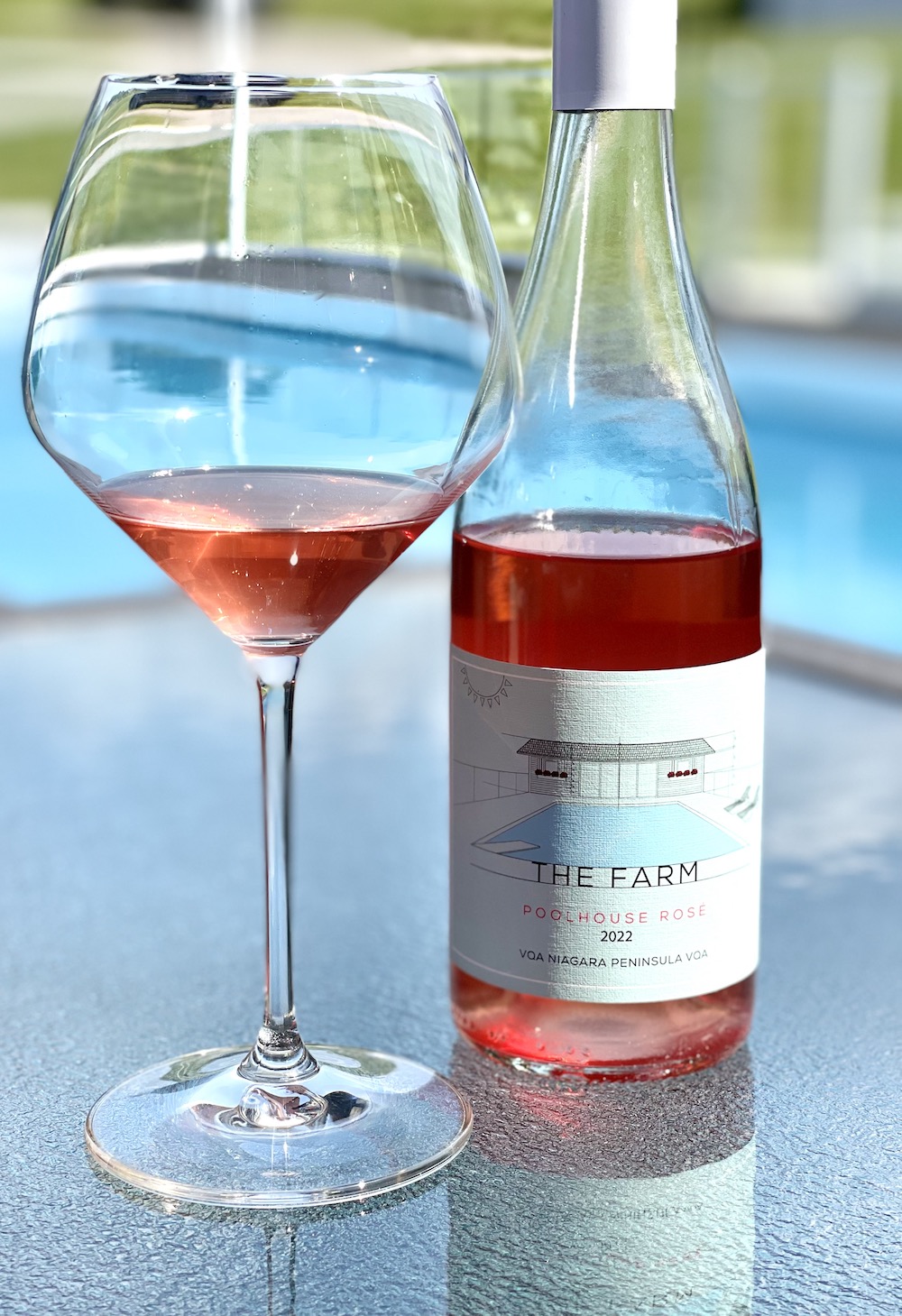
The Farm Poolhouse Rosé 2022 ($22, 91 points) — There’s something quite satisfying about sitting by the very pool where this rosé gets its inspiration on a sunny day with The Farm gang. It seems to be the perfect setting for this lovely Gamay-based rosé. Juniper had to move off Pinot Noir for the 2022 rosé because it was in short supply and “stumbled on some Gamay and just went for it.” It shows a pretty, light salmon colour in the glass with a nose of fresh red berries, watermelon, and subtle earthy undertones. It’s fresh and lively on the palate with a melange of brambly raspberries, cherries, and cranberries with integrated meaty/earthy notes with a splash of fresh herbs. It’s vibrant, refreshing and highly quaffable … especially poolside!
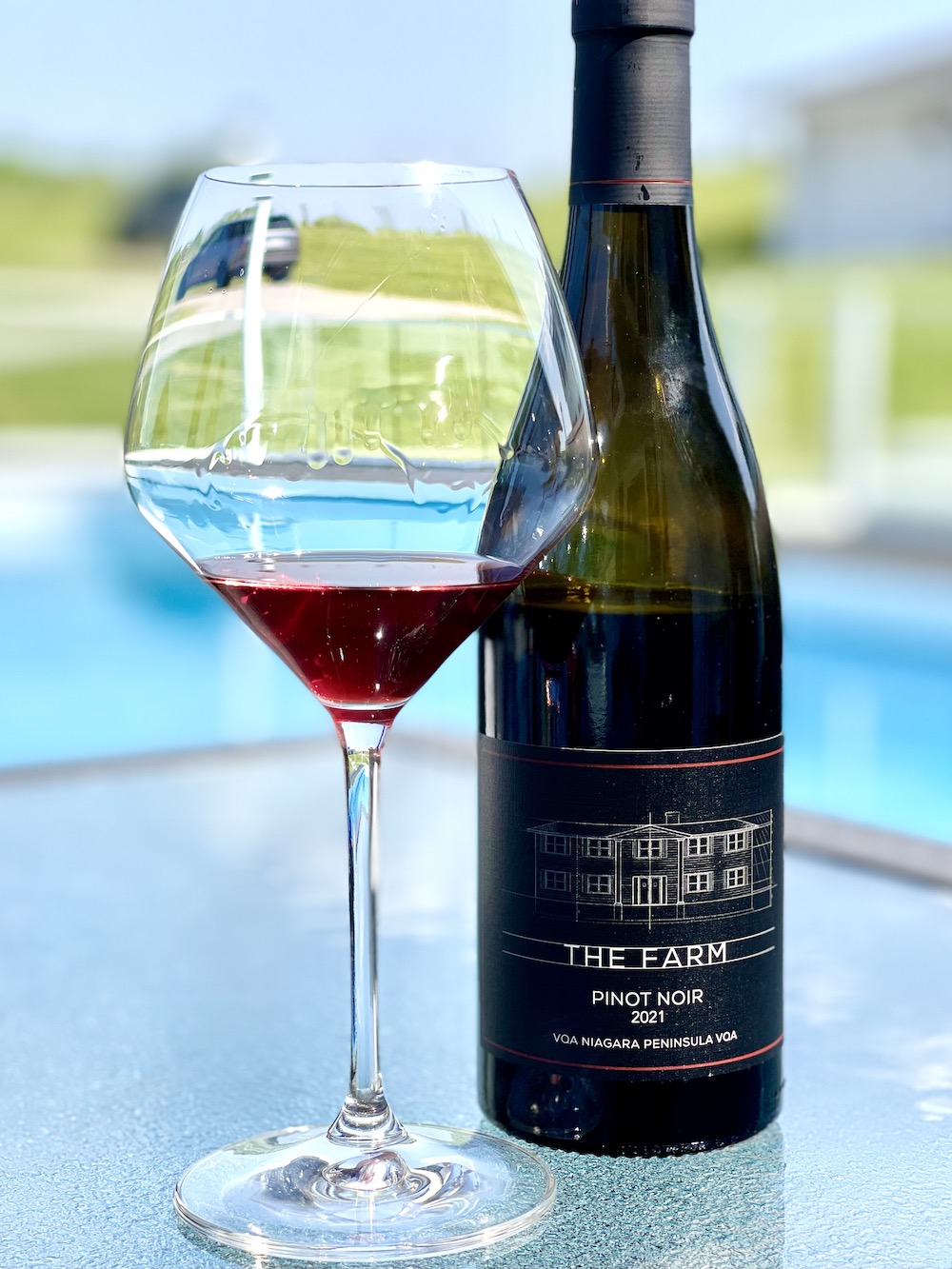
The Farm “Black Label” Pinot Noir 2021 ($28, 90 points) — When the Neudorf family envisioned a Pinot Noir for licensees, they had one customer in mind, explains Erika Neudorf. Her grandfather, Peter Neudorf, co-founder of Ferguson-Neudorf Glass, “drinks a bottle of Pinot Noir every day. “He’s our No. 1 customer,” says Erika. He still comes to the office every day, “looks at the numbers, shakes hands and picks someone to have lunch with.” Knowing that Neudorf frequents restaurants in the area around where the company is located (and around the warehouse, as well), Erika long ago made sure that every one of those restaurants is always stocked with the “Black Label” Pinot. “We have to hoard cases to make sure he always has his Pinot to drink.” The blend is sourced from friends mostly on the Bench with a small about from Niagara-on-the-Lake, and is a “reflection of the region,” says Juniper. It’s unfiltered, unfined and has judicious use of oak. It has a fruit-forward nose of black cherries, black raspberries, some cassis, rose petals and a pinch of spice. It’s soft and silky on the palate with rich and succulent red berries, some earthy/savoury notes and a bright, lifted finish. If you want any of this Pinot Noir, the lineup starts behind Peter Neudorf.
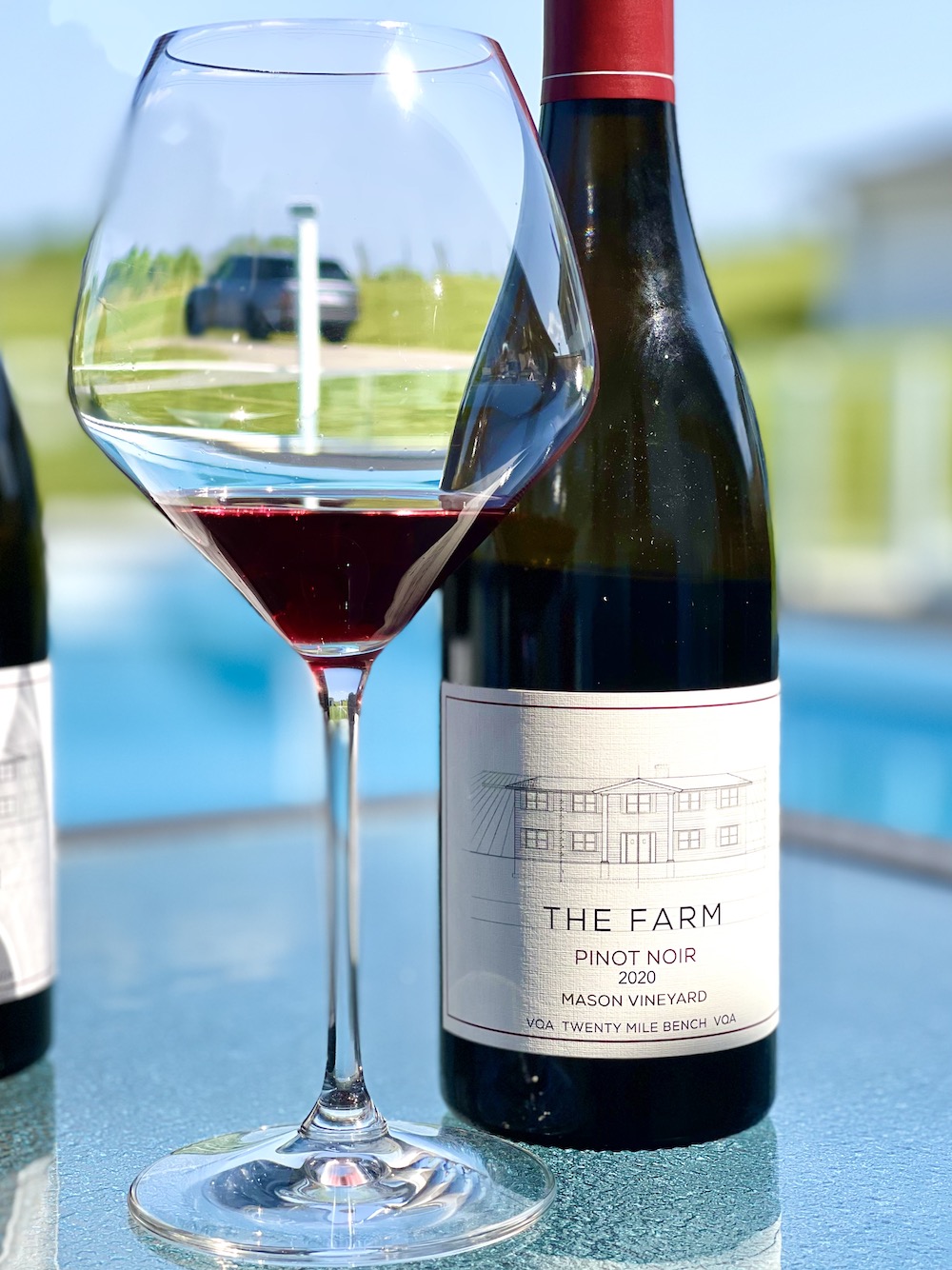
The Farm Mason Vineyard Pinot Noir 2020 ($50, 93 points) — This is the last Mason Vineyard Pinot Noir from The Farm. Former winemaker Kelly Mason now has her own brand, and The Farm has sourced new Bench grapes for the second expression in the single-vineyard series. The Pinot Noir grapes from Mason are 30+ years old and are handpicked, hand-sorted and undergo wild fermentation (both primary and secondary) with a cold soak and a long maceration on the skins post fermentation. The wine is finished unfined and unfiltered. There is always such a beautiful floral/perfumed note on the nose that is both pretty and powerful, then the red berries kick in with cassis, forest floor and savoury spice notes. On the palate, this Pinot is complex and intriguing with savoury red berries, anise, lovely texture, with mouth-watering acidity that leads to a long and finessed finish. It’s still evolving and tight and will benefit from a year in the cellar and can still age for 5 years after that. A beautiful and special Pinot Noir.
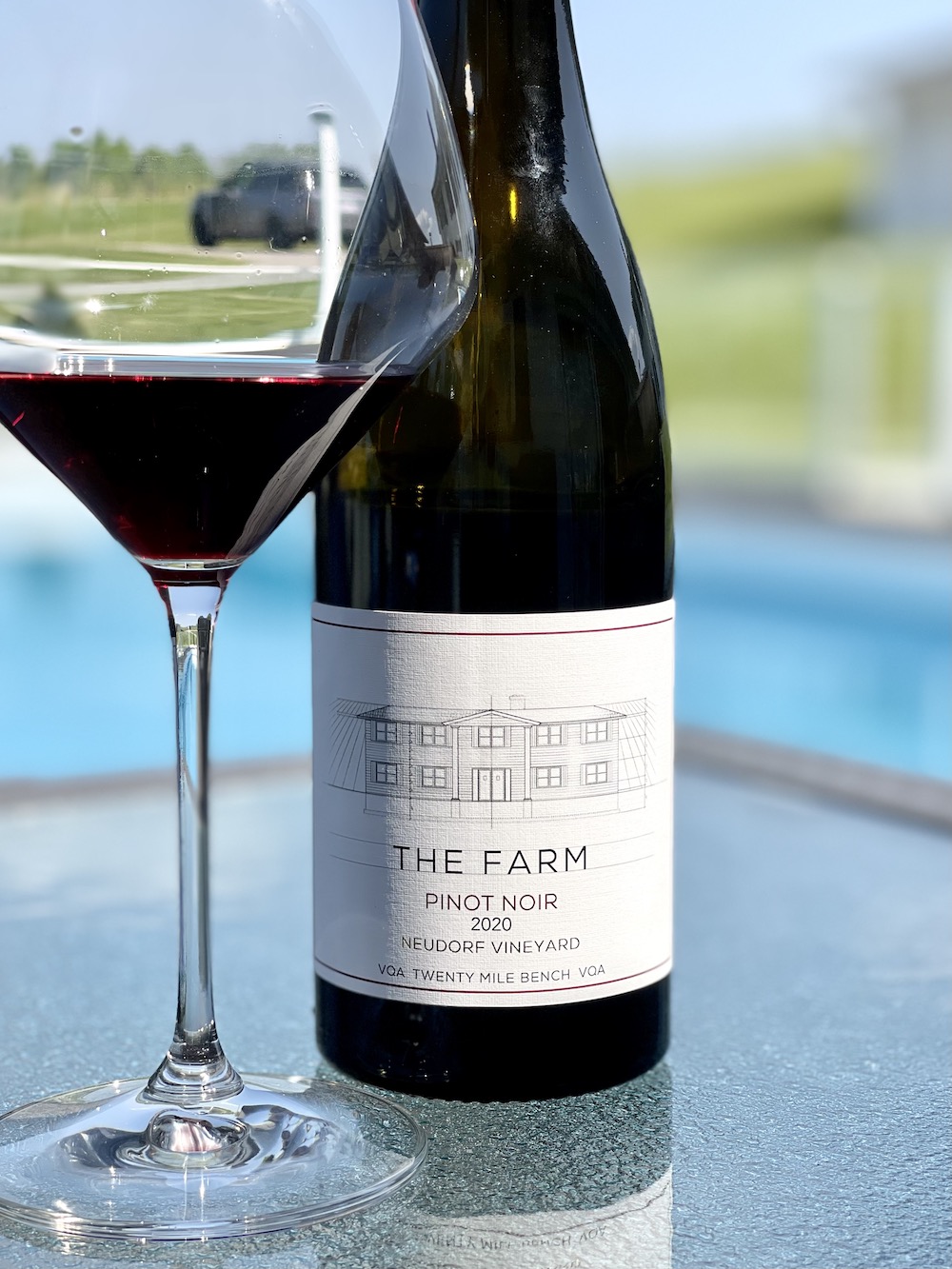
The Farm Neudorf Vineyard Pinot Noir 2020 ($55, 95 points) — This is the flagship wine, “the reason we do what we do,” says Erika Neudorf. Everything that is done at The Farm revolves around the 10-acre home vineyard that hugs the perimeter of the property on the west and south side of the estate. The grapes are hand-picked, hand sorted and undergo wild fermentation (both primary and secondary) with a cold soak and a long maceration on skins post fermentation. They are fermented and aged in French oak barrels, mostly neutral oak. The vineyard was originally planted with Pinot Noir in 2000 for Le Clos Jordanne and aptly named La Petite Colline, meaning little hill, a nod to the gentle slopes that permeate the plot. The vineyard was farmed organically from the beginning and the wine sees no manipulations, including fining or filtering. Pinot lovers will inevitably taste the Mason and Neudorf Pinots side-by-side and dissect the differences. For me, the 2020 Neudorf is more open knit than last year’s version, which was tight on release, and is denser and more lifted on the nose (to be expected from the warmer 2020 vintage) with violets, cranberries, brambly raspberries, black cherries, iron/bloody minerality, subtle savoury/earthy notes and unobtrusive spice notes. It is texturally beautiful on the palate with a chalky/silky feel, fine tannins, red fruited, crunchy cranberries, anise, underlying earthy/savoury accents, subtle spice and a then a long, vibrant, and lifted finish. A generous, enthralling Pinot that can cellar for 5+ years. If you love this wine, stock up. Some poor winters have reduced the crops of upcoming vintages.
The RR81 Wines
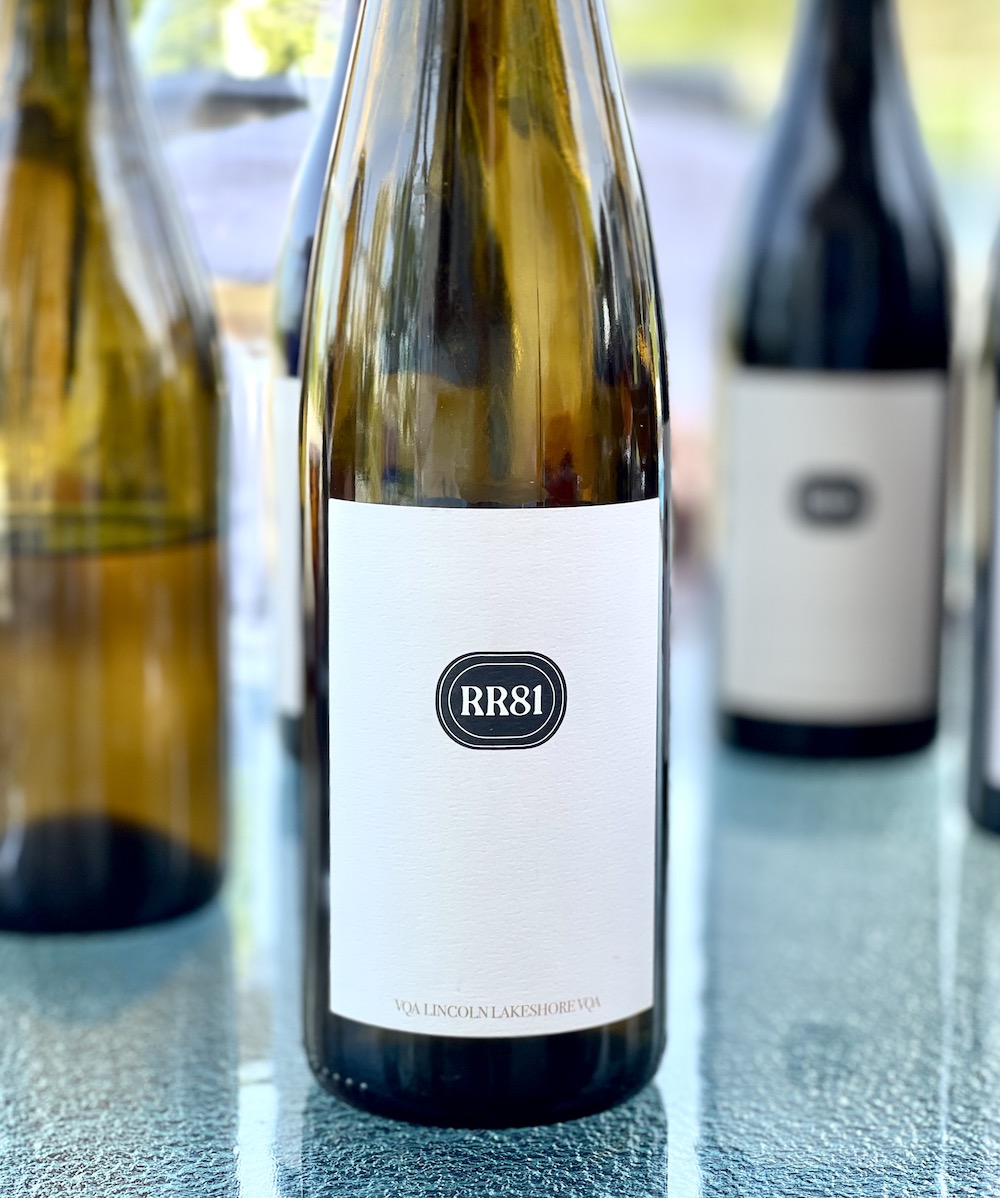
The RR81 wines, a sub-label of The Farm that focuses on varieties the team finds interesting from vineyards farmed by friends, is “my little playground that allows us to push boundaries with varieties,” says Juniper. All the wines are made in a natural style, but Juniper stresses, it’s not about that, it’s more about taking a Niagara grape variety and “turning it on its head.” All six of the wines in the portfolio, available as a six pack for $195 soon, are made with “zero, zero, zero” additives. In other words, nothing added but the grapes, not even sulphur at any stage, with lees aging and bottled on the lees. The team seeks out organic grapes where they can, but it’s not always possible.
I will say this about the entire portfolio of RR81 wines — if I was poured these wines blind, I would have no clue that these were “natural” wines. They are clean, variety-correct and “don’t smell like poop,” as one person who shall not be named said at our tasting. They are fun, accessible, and fresh wines that just may bring a few converts into the natural wine world. “These wines are made with zero ego,” says Juniper. “It’s just grapes, wines to be enjoyed.”
To be the first get these wines, follow RR81 on Instagram here and watch for an announcement in early summer. Six-packs of each of the following will be offered for $195.
Fun Fact: Each fronting label is white with the RR81 imprinted on it. The details for each wine are written on the back label, each with its own colour.
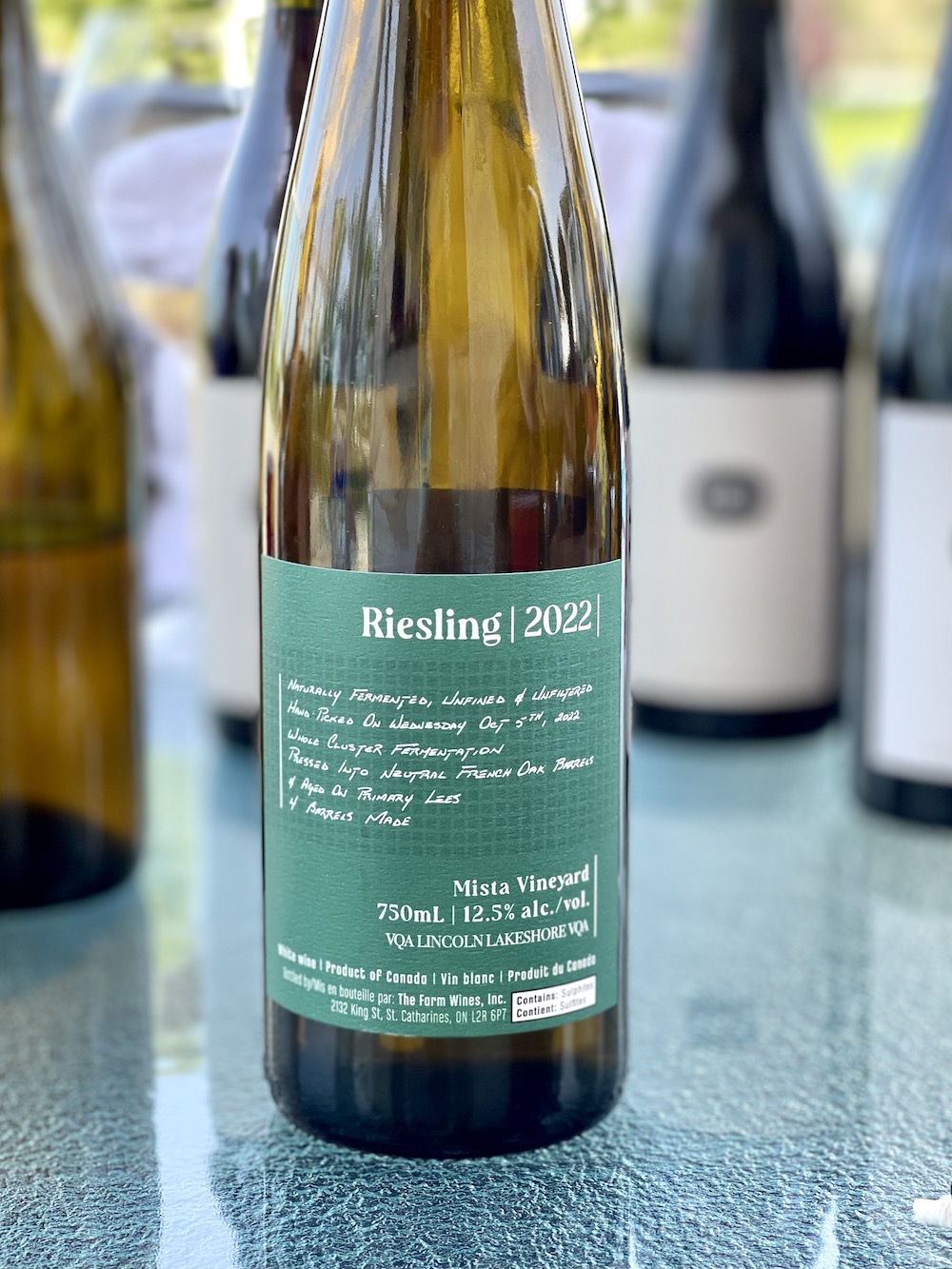
RR81 Riesling 2022 (89 points) — From the Mista Vineyard, an organically farmed property in the Lincoln-Lakeshore sub-appellation. Made in a more Alsatian style with whole cluster fermentation that’s finished off in barrel. It sits on the lees for seven months and is bottled on the lees. An attractive nose of pear, citrus, apricot, stony minerality and lemon tart. It has gorgeous texture to go with a rounded, rich palate of stone fruits, citrus zest, mineral and a clean, fresh finish.
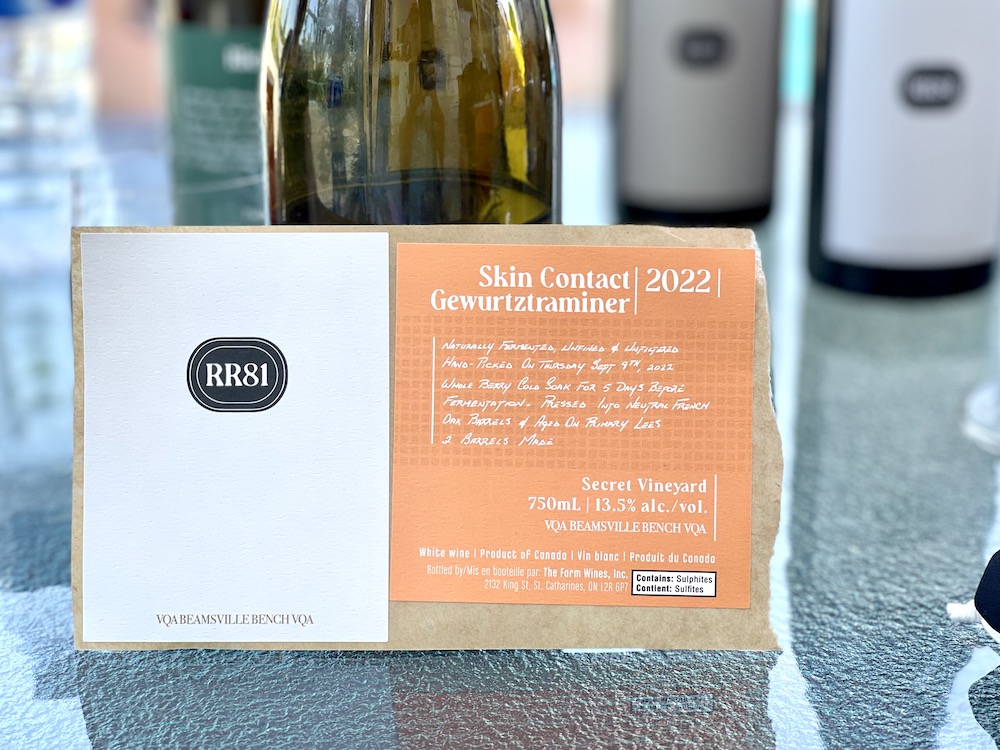
RR81 Gewurztraminer 2022 (89 points) — The Gewurztraminer grapes spent five days on the skins. A portion of the grapes were botrytised and the wine aged in a combination of stainless steel and neutral oak barrels. It shows a light golden colour in the glass with exotic notes of tropical fruits, mulled citrus, bruised apple, lychee, and peach cobbler. It’s ripe and rich on the palate and teems with tropical fruits, peachy-apple notes, citrus and a bright finish.
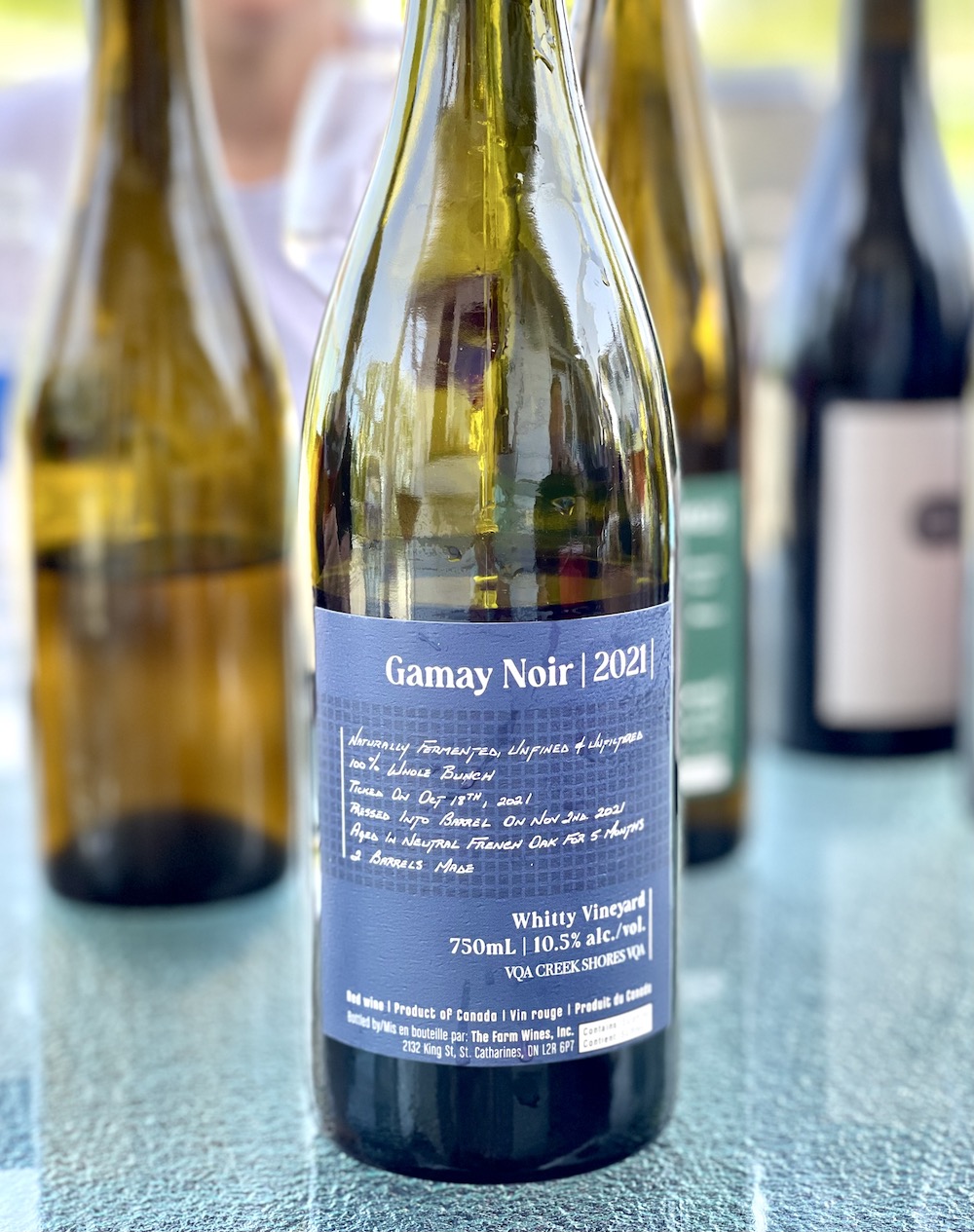
RR81 Gamay Noir 2021 (90 points) — Sourced from the Whitty Vineyard, this Gamay sees a bit of aging in neutral oak. The nose is rich in plums and red berries with pepper, herbs, and ever so subtle oak spice. It’s tangy and quaffable on the palate with sour cherries, fresh raspberries, plums, and anise with a bright, long finish.
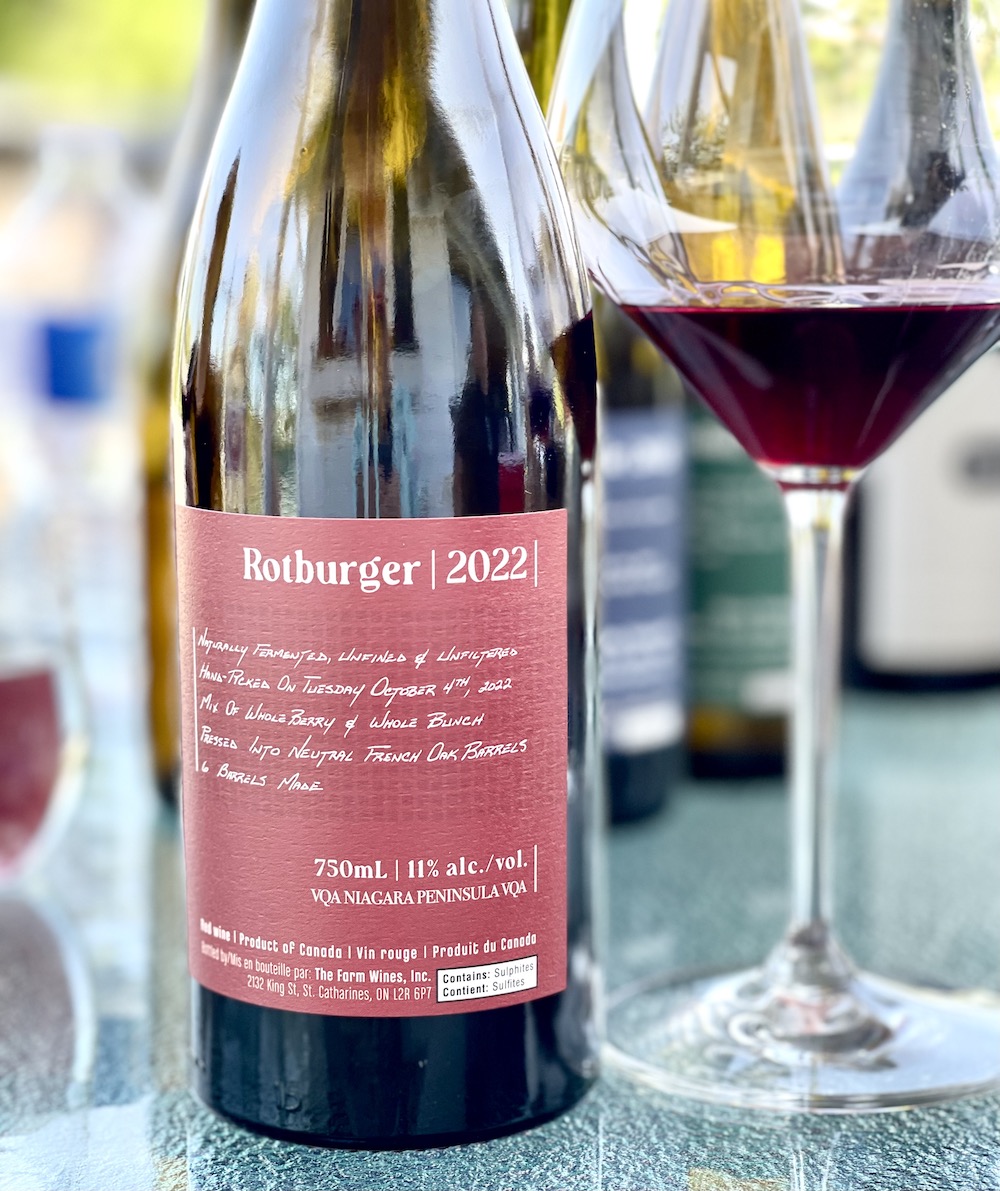
RR81 Rotburger 2022 (92 points) — In many ways this Rotburger (the grape formerly known as Zweigelt) is the poster child for the RR81 brand. It’s the only wine made in all three vintages from 2020 to 2022. This wine was inspired by a trip to Austria over 20 years ago where Peter Neudorf became fascinated by Zweigelt Rotburger. His daily ritual of a bottle of red necessitated a wine that showcased freshness, but also lower alcohol. At 10% abv, Zweigelt Rotburger is the perfect ‘lunch wine’ for the patriarch, when he’s not drinking the Black Label Pinot Noir. It’s naturally fermented, unfined and unfiltered, and aged in neutral French oak and amphoras. It really is a personable grape, despite the history of the name, that shows an inky, dense colour in the glass with vivid aromatics of blueberries, macerated cherries, mulled herbs and savoury/earthy notes. The thick broth of red berries carries to the palate with some tannic grip, licorice, savoury/earthy notes, wild blueberries, and electric acidity driving through the fresh finish.
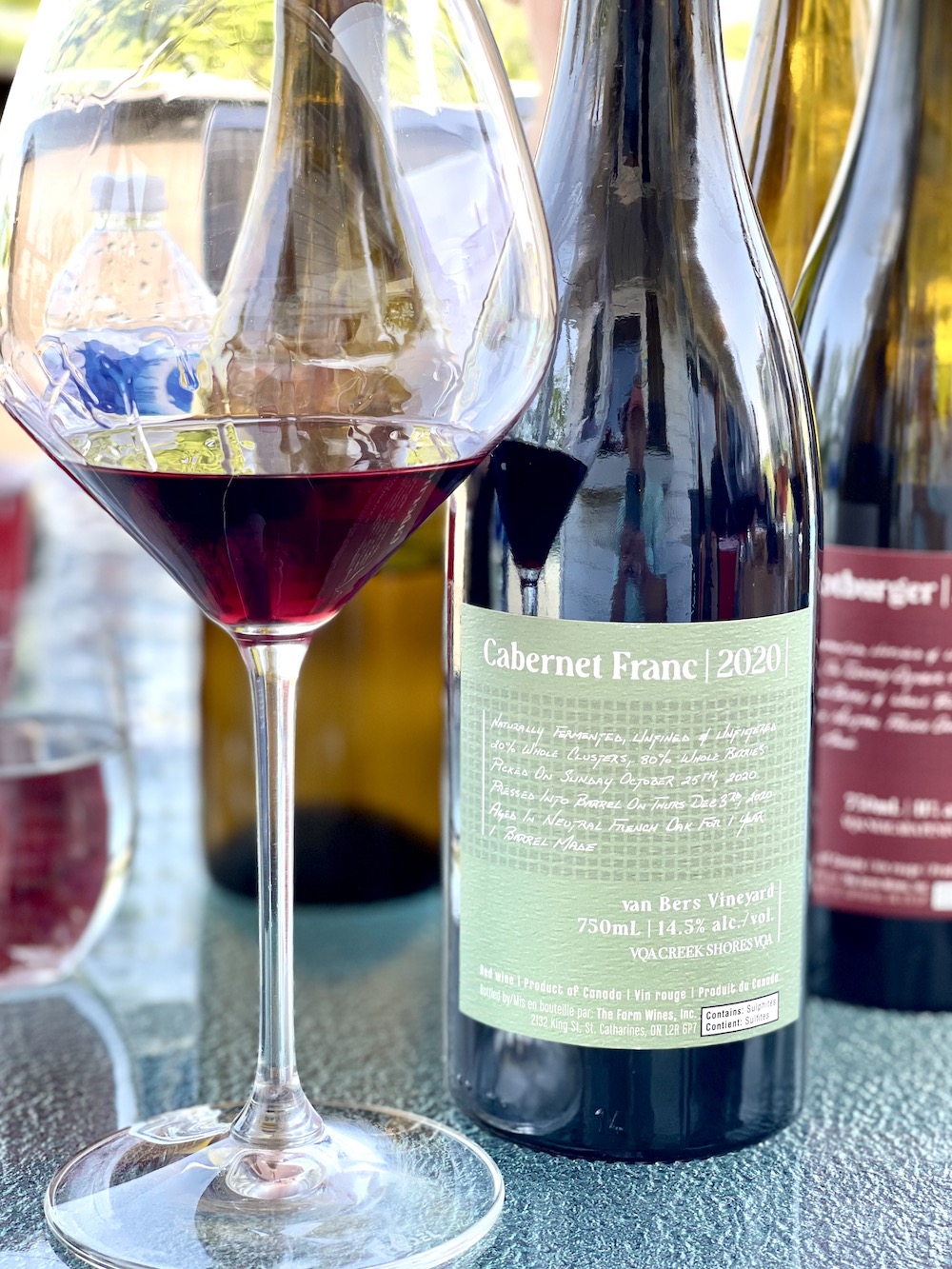
RR81 Cabernet Franc 2020 (93 points) — This lovely Cab Franc is sourced from the Van Bers Vineyard in the Creek Shores sup-appellation. This is a banger! Such a wonderful nose of savoury red berries, perfumed cassis, herbs, spice, and earthy/savoury notes. It’s rich and ripe on the palate with pure red berries, black licorice and just the right amount of savory/earthy notes and herbaceous accents. It finishes is long and finessed. Can cellar 4+ years.
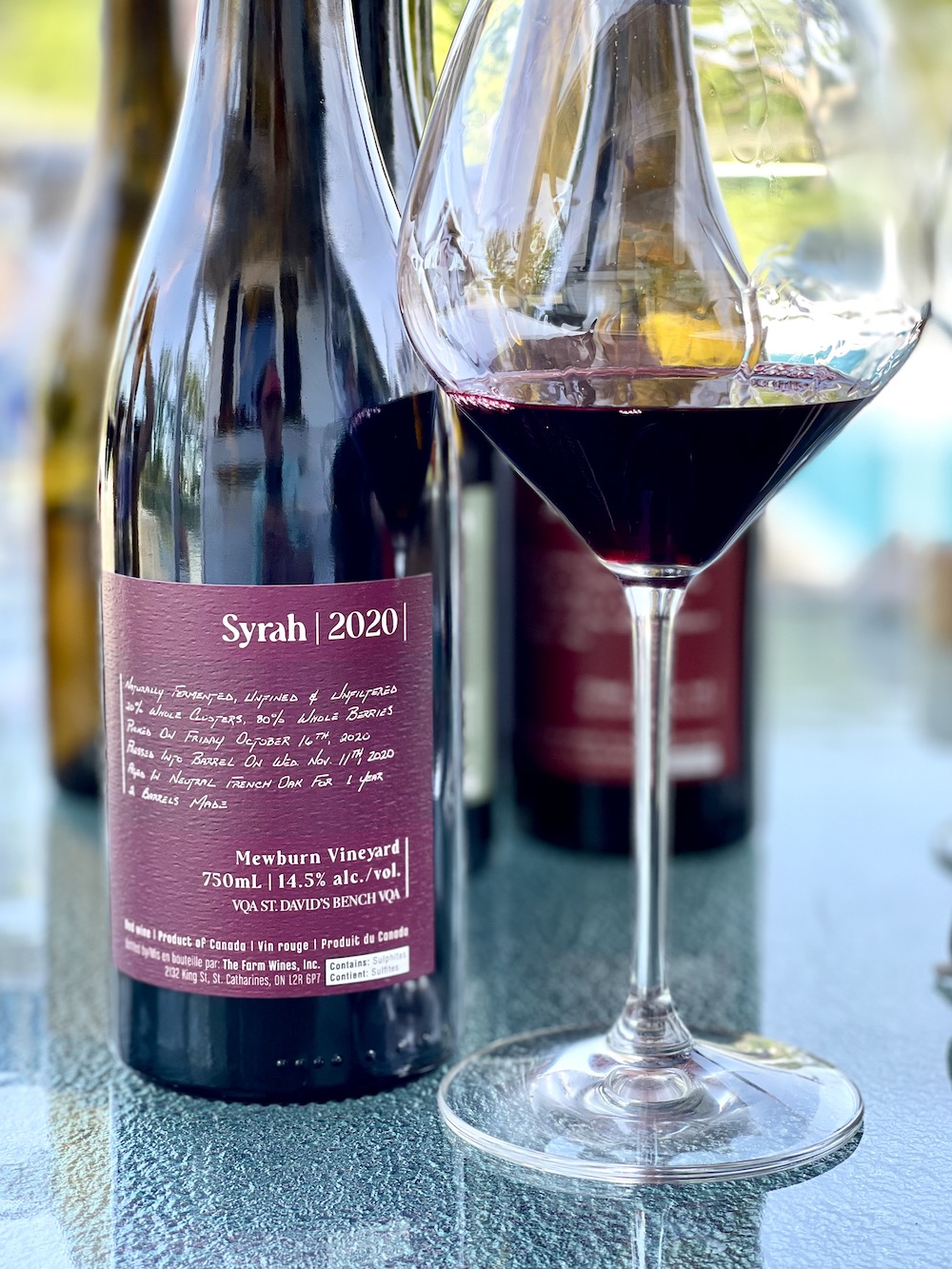
RR81 Syrah 2020 (92 points) — Such a smoky/peppery nose with meaty red berries, black currants, and spice. This is nicely structured on the palate with rich and meaty notes cassis, black currants, wood smoke, gobs of black peppercorns with good structure, fine tannins, and a lifted, finessed finish. Great Syrah!


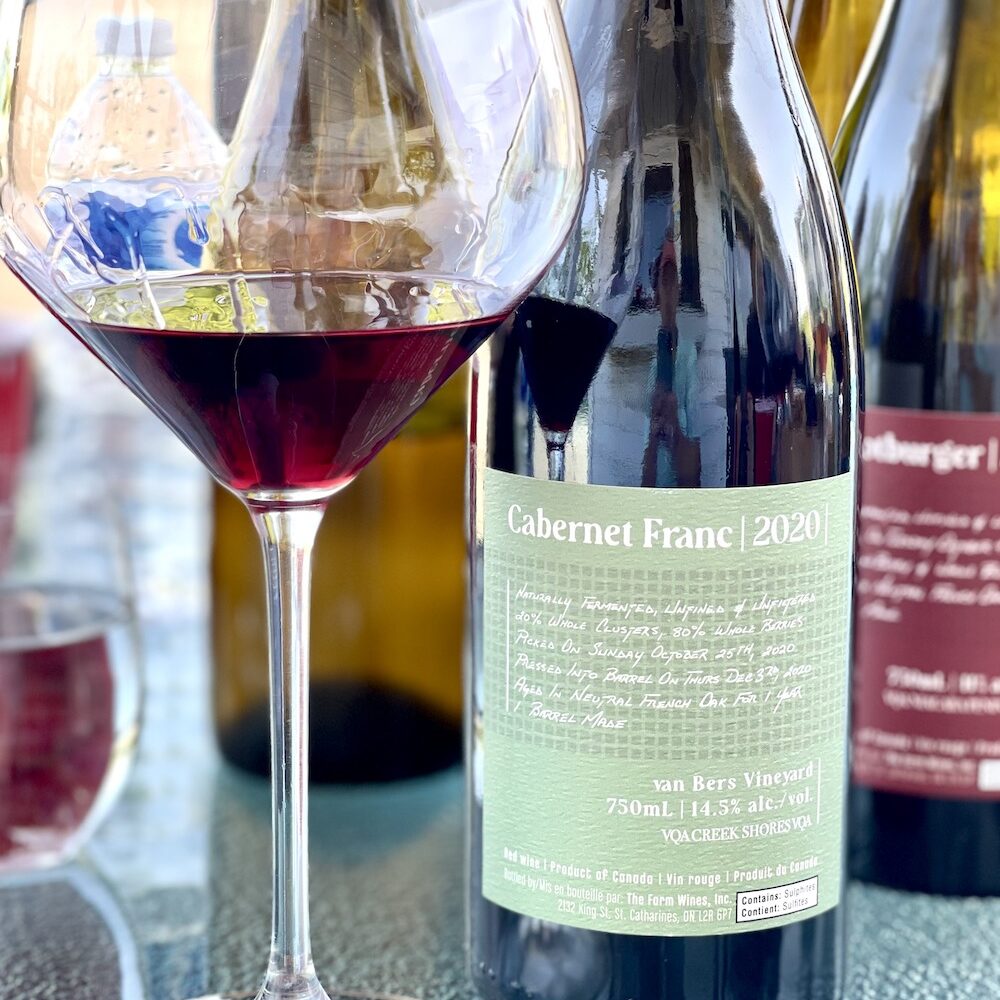




any grape variety with the word Rot in it , will be a tough sell to the non wine geek crowd.